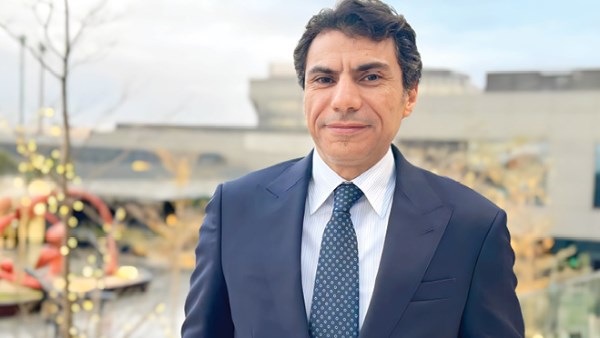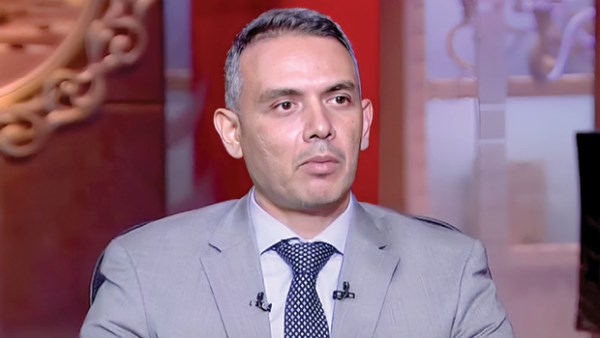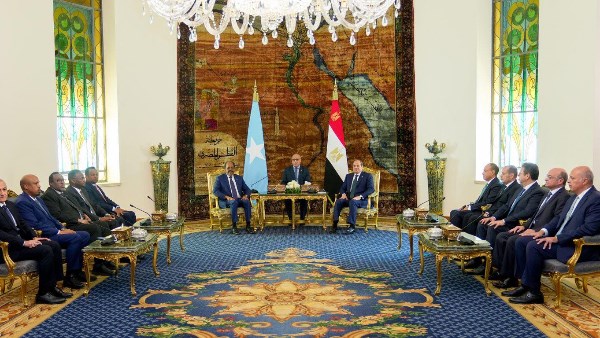
Finance’s Largest Net-Zero Club Needs New Talking Points for COP

“Net zero”was virtually the only talking point when finance luminaries gathered at the United Nations climate conference in Glasgow last year.
Rishi Sunak, then UK chancellor and now prime minister, spentfinance dayat COP26 speaking of the need tocreate a net-zero-aligned financial center.Mark Carney, former Bank of England governor,announced finance firms with $130 trillion of assets were committed to net-zero financed emissions.And European Central Bankexecutive board memberFrank Eldersonsaid central banks were prepared to support the transition to net zero.At COP27, which kicks off next week in Sharm El-Sheikh, the conversation willneed to bebroader. That’s becausebankers bringing anet-zero message toAfrica risksounding as out of place as the wail of bagpipesin an Egyptian souq.
Climate disasters
Egyptand the broader African continenthavecontributed just a fraction to global greenhouse gas emissions, and yet willbe among the most vulnerable countries to climate disasters. As such, a key focus of COP27 will be getting rich countries that have done the most to warm the worldto commit more funding to help developing nations adapt,withdiscussion expected to touch on compensation for climate damages.
“Africa has produced around 3% of global emissions but is in the front line of physical risk from climate change, so being preached to on net-zero emissions is going to be jarring,” said James Vaccaro, who leads the Climate Safe Lending Network and sits on theadvisory board of the Glasgow Financial Alliance for Net Zero, or GFANZ. “They want to focus on the critical task of financing adaptation and climate resilience.”
Not everyone thinks GFANZ’s net-zero message will be out of tune. Hendrik du Toit, chief executiveof $154 billion investment firm Ninety One and advisory board member forGFANZ’sAfrica Network, said it is “absolutely appropriate” to discuss net zero in Africa.Even though “rich-country governments have not yet come to the party helping the poorer nations,” he said, the scientific imperative to reach net-zero emissions by 2050 to avoid catastrophic global warming still remains.GFANZ, a Carney initiative thathas gathered many of the world’s biggest banks, insurersand asset managersin the name of eliminating emissions from their portfolios, will still probably need some other talking points in Sharm El-Sheikh. With around $150 trillion of assets now backing the alliance, $20trillion more thanin Glasgow, talk will turn to how to get those dollars to support climate projects in emerging markets where the biggest climate impacts can be had.“Emerging economies weren't impressed by the $130 trillion declaration in Glasgow; they were interested only in the mechanisms to get hold of it,” said JamesClose, the former director of climate change at the World Bank who is nowhead of climate change atNatWestGroup Plc. “That is the crux of matter.”GFANZ said in its progress report at the end of October that the alliance has worked “todevelop and support”initiatives to scale up financing to developing economies, including so-called Just Energy Transition Partnerships, which aim to steercountries such as South Africa and Indonesia away from coal and toward cleaner forms of energy.
The front lines of climate change
For the denizens of big finance that have signed up to GFANZ, an African COP also offers a rare chance to see more clearly the front lines of climate change.(Althoughmany of the Wall Streetheavyweights that attended COP26 will skip COP27).
“An African-hosted COP may help the global community appreciate more viscerally the likely physical impacts of unmitigated climate change,” said Venetia Bell, chief sustainability officer at GIB Asset Management. “The adaptation investment needed in Africa is already challenging on current trajectories.”
Still, du Toit warned thatfocusing the conversation exclusively on adapting to global warming would at this stage be surrendering to the threat of climate change: “GFANZ doesn’t have a defeatist spirit.”





-1120252475029447.jpg)















